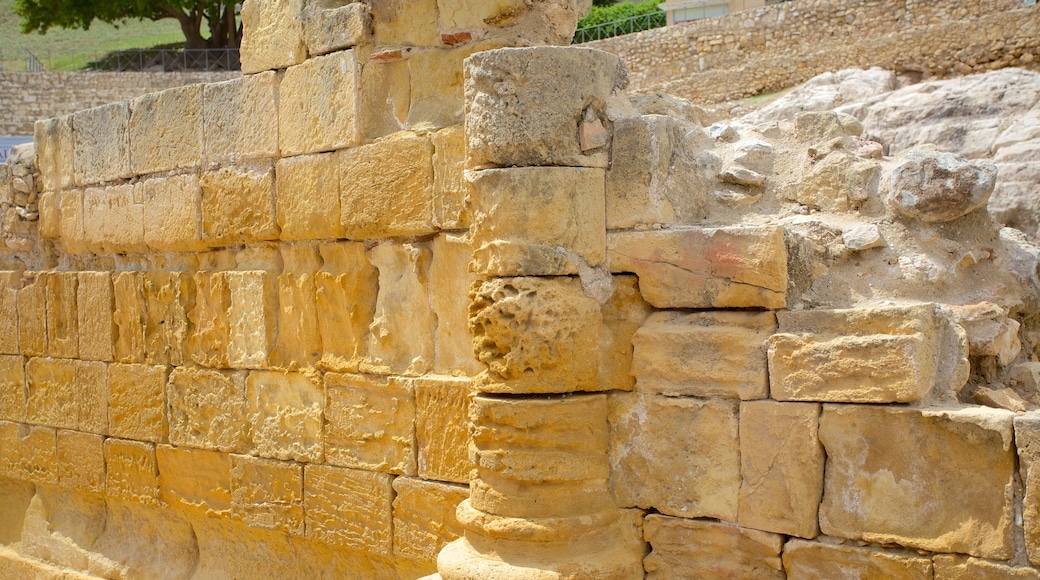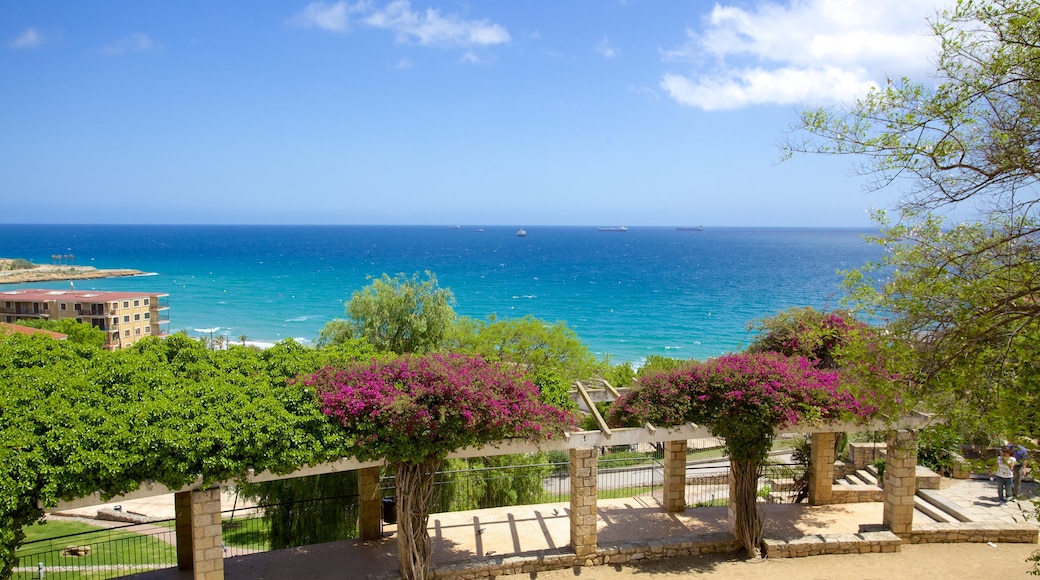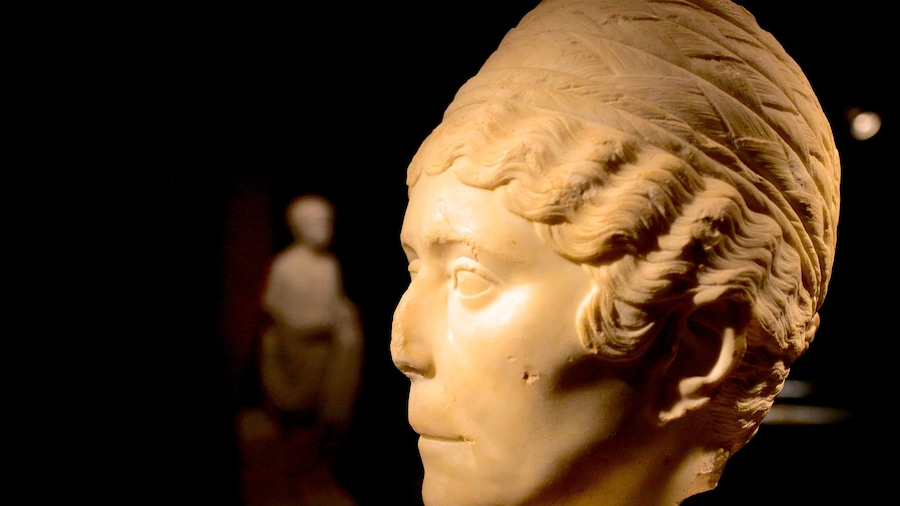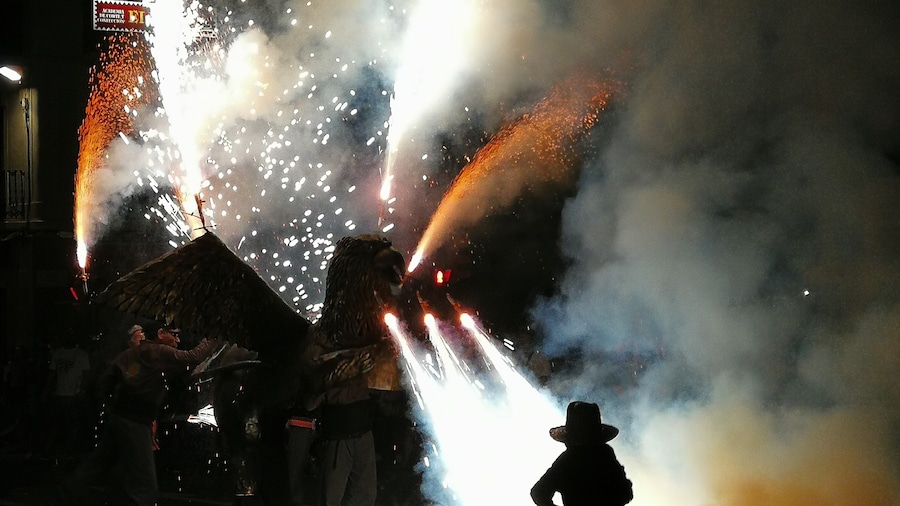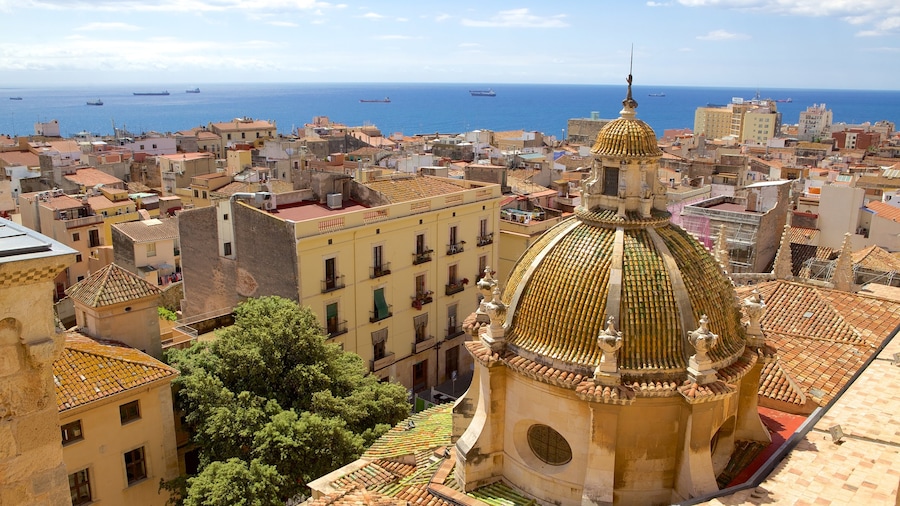ตาร์ราโกนา แอมฟิเธียเตอร์ เป็นสิ่งก่อสร้างจากยุคโรมันที่โดดเด่นที่สุดแห่งหนึ่งของเมือง ตัวสนามกีฬาโบราณแห่งนี้มีเวทีรูปไข่และแถวที่นั่งหินที่ถูกสร้างขึ้นบนเนินเขา เดินชมรอบๆ สนาม ซึ่งครั้งหนึ่งเคยเป็นลานประลองของกลาดิเอเตอร์ที่ต่อสู้กับสัตว์ป่าโดยมีชีวิตเป็นเดิมพัน และสถานที่ประหารชีวิตนักโทษ
แอมฟิเธียเตอร์ก่อสร้างขึ้นในศตวรรษที่ 2 ในบริเวณใกล้กับชายหาด เพราะจะได้ขนย้ายสัตว์หายากจากเรือมาที่นี่ได้โดยตรงอย่างสะดวก
ก่อนจะมาเที่ยวชมที่นี่ ให้ไปถ่ายรูปแอมฟิเธียเตอร์โดยมีทะเลเมดิเตอร์เรเนียนเป็นฉากหลังที่ El Balcón del Mediterráneo เสียก่อน จุดชมวิวจากมุมสูงแห่งนี้ตั้งอยู่บนถนน Rambla Nova จากนั้นเดินลงบันไดมายังสนามประลองนักสู้กลาดิเอเตอร์โบราณ
เดินสำรวจอัฒจันทร์ซึ่งครั้งหนึ่งเคยรองรับผู้ชมได้ถึง 15,000 คน และลองนั่งในที่นั่งอายุเกือบ 2,000 ปี เดินลงไปที่บริเวณสนามด้านล่างเพื่อตามหาประตูที่กลาดิเอเตอร์ต้องเดินผ่านเพื่อออกมาประลองฝีมือ จากนั้นเดินต่อไปยังบริเวณกลางสนาม และจะพบกับซากปรักหักพังรูปไม้กางเขนละติน ซากปรักหักพังเหล่านี้เป็นส่วนที่ยังคงเหลืออยู่ของโบสถ์โรมาเนสก์ Santa Maria del Miracle ที่สร้างขึ้นในศตวรรษที่ 12 ทับบริเวณที่เคยเป็นวิหารวิซิกอทซึ่งอุทิศให้กับ 2 ผู้พลีชีพเพื่อศาสนาที่ถูกเผาทั้งเป็น ณ ที่แห่งนี้
ตาร์ราโกนา แอมฟิเธียเตอร์เปิดทุกวัน ยกเว้นวันจันทร์ และมีค่าเข้าชม บุคคลที่เกษียณแล้ว นักเรียน และเด็กอายุต่ำกว่า 16 ปี สามารถเข้าชมได้ฟรี
สนามกีฬาโรมันโบราณแห่งนี้ตั้งอยู่ด้านล่างทางทิศใต้ของ Rambla Nova ซึ่งเป็นถนนสายหลักของเมือง และสามารถเดินจากท่าเรือและสถานีรถไฟมาได้
เดือนพฤษภาคมเป็นช่วงเวลาที่ดีที่สุดในการมาเที่ยวชมตาร์ราโกนา แอมฟิเธียเตอร์ เพราะมีการจัดเทศกาล Tarraco Viva ขึ้นเพื่อเฉลิมฉลองประวัติศาสตร์โรมันทั่วเมือง และจะมีการจำลองการต่อสู้ของนักรบกลาดิเอเตอร์ขึ้นที่อัฒจันทร์แห่งนี้



